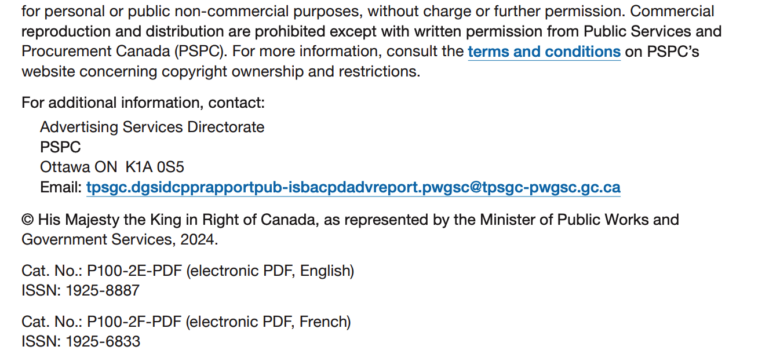Crown copyright, which grants the government exclusive copyright in any any work that is, or has been, prepared or published by or under the direction or control, has long been the focus on copyright and open government advocates who have called for its elimination. Under the current system of crown copyright that dates back for decades, government departments can use copyright to limit the publication or distribution of public works. While the government moved away from paid licensing to a non-commercial licence in 2010, commercial uses are still subject to permission and licence. The issue was one of the most controversial at the 2019 copyright review with the committee split on the issue: the government supported the creation of an open licence, while both the Conservatives and NDP backed its elimination altogether.
While debate over crown copyright continues (this 2019 Law Bytes podcast episode with Amanda Wakaruk and Jeremy de Beer focused on it), NDP MP Brian Masse has been a consistent advocate in favour of its elimination. There have been bills to eliminate crown copyright that date back to the 1990s, but Masse has introduced several crown copyright bills in recent years. Last week, he did it again with Bill C-374. The bill features a single provision reversing Section 12 of the Copyright Act on crown copyright:
Section 12 of the Copyright Act is replaced by the following:
No copyright — His Majesty
12 Without prejudice to any rights or privileges of the Crown, no copyright subsists in any work that is, or has been, prepared or published by or under the direction or control of His Majesty or any government department.
Given the government’s one-time emphasis on open government, reversing crown copyright once seemed like an obvious reform. While it still hasn’t happened, Masse continues to place the issue on the legislative radar screen in the hope that government put an end to the outdated practice of using copyright to exert control over government works paid for with public dollars.








Are there already specific carve-outs for information that is classified, or is PII?
Much as I think this is long overdue, especially compared to our major trading partner which has government work as public domain, the information held by areas such as Statistics Canada could potentially be de-anonymized with some very poor individual effects.
Chris, classified information is covered by the Security of Information Act, and PII by the Privacy Act. So while there may not be specific carve-outs in the Copyright Act, it is otherwise carved out.
As far as being long overdue, I am of a mixed mind about this. I could definitely see removing it for personal use of the information. Where I am not so sure is in the situation where a private individual or corporation publishes the information commercially, in particular if what they are publishing is an actual copy of the document. One carve-out on this I would make is publishing a physical document which is only available from the government in digital form; this would allow people with poor or non-existent internet access to the information. As would digitizing paper only documents.
As far as research purposes are concerned, again to me I draw the line at commercialization of the government information. Should a company (especially a foreign company) be able to commercialize a product produce using GoC information as an input to the development of the product? I would think that, in this case, the GoC should be able to license the information.
To try to put it in terms of existing software licensing schemes, personal and not-for-profit (including educational) uses would have a “copyleft” type license such as GPL, while for for commercial purposes a specific commercial license would be required. Sort of in the way that the product Qt is licensed. The idea is that if someone is going to make money from the GoC work they should assist in offsetting the costs to produce the work in the first place.
Thanks! I’m ready
Electric pruning shears are electric tools used for gardening operations to trim branches and leaves. It is mainly composed of batteries, blades, and the main body. When in use, the upper blade is driven by electric power to move back and forth, while the lower blade is fixed to complete the trimming work. The use of [electric pruning shears](https://hardell.com/collections/electric-pruning-shears) only requires pulling the trigger to complete the pruning of branches.
Are you looking for a fun and engaging way to unwind after a long day? Look no further than suika game! This delightful puzzle game offers a unique and enjoyable experience that is perfect for relaxation and entertainment. Let’s explore why Suika Game is the ideal choice for your next gaming session.